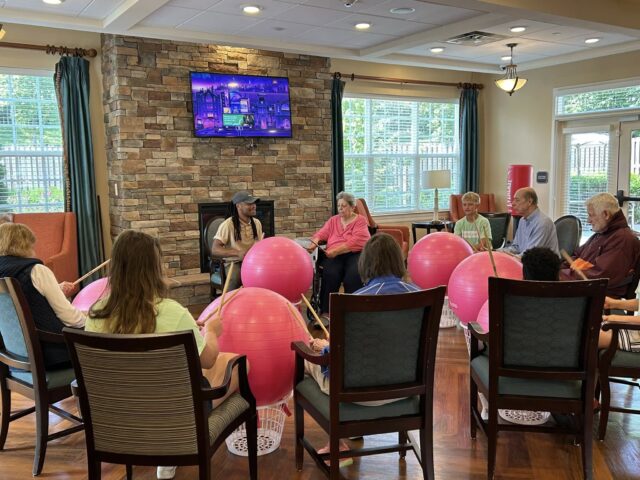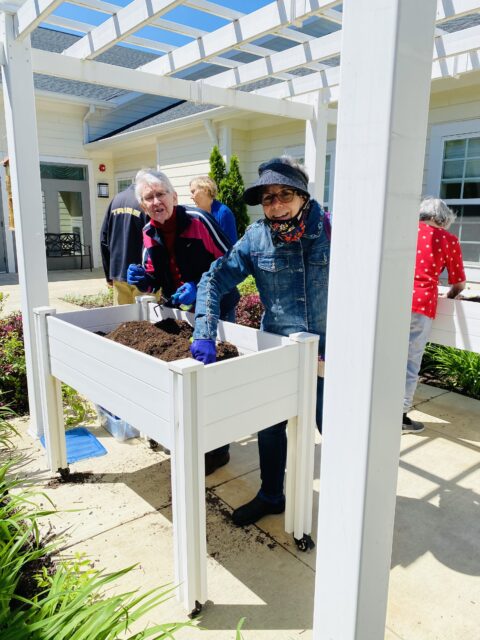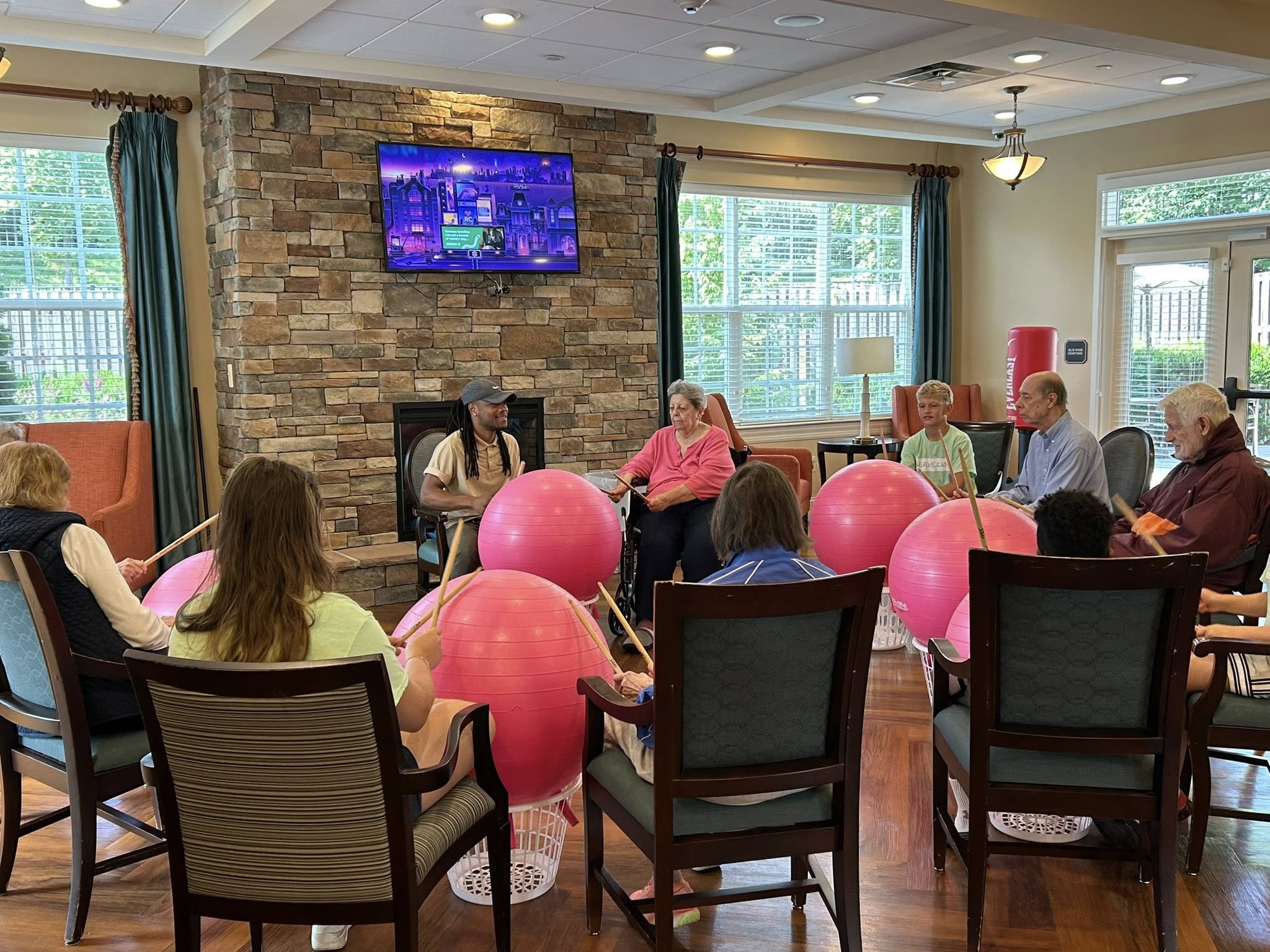Our Community
The Atmosphere of Home
Family-Like Community
At the heart of Lansdowne Heights is a dedication to cultivating a sense of belonging. With a reputation for excellence in senior living, the community prides itself on forging deep, meaningful connections among residents and staff alike.
The staff at Lansdowne Heights are more than caregivers; they are companions and confidants. This personal approach creates a family-like atmosphere where residents are cherished and supported.
“At our community, you’ll feel a family-like atmosphere. This means we take a personal interest in the happiness and comfort of each resident.”
Community Events and Activities
The community regularly organizes events that bring residents together, from cultural celebrations to quiet movie nights. These social activities are crafted not just for entertainment, but to foster bonds and create memories much like a family gathering in the comfort of one’s home.

Thoughtful Interior Design
Designing for Comfort and Engagement
Lansdowne Heights takes great pride in their interior design choices, ensuring that each space feels welcoming and accessible to all. The design embodies a delicate balance of style and function.
Warm colors, soft furnishings, and strategic lighting create a cozy ambiance reminiscent of a beloved home. Spaces are intentionally arranged to promote relaxation while being mindful of the practical needs of residents. This approach not only enhances comfort but also facilitates ease of movement, crucial for seniors requiring assistance.
Personalization of Spaces
Recognizing the importance of personalization, Lansdowne Heights encourages residents to bring personal mementos and decorations. This flexibility helps to transform neutral spaces into personalized sanctuaries, making them truly feel like home.
“The staff are wonderful and really engage with the residents.” – Lansdowne Testimonials

Compassionate Memory Care
Tailored Care Plans
Lansdowne Heights is particularly noted for specializing in memory care, where individualized care plans are provided for each resident. These tailored approaches are designed to cater to personal needs while creating opportunities for meaningful connections through daily activities. Such personalized attention ensures that residents not only receive care but also live enriched lives.
For those living with memory-related conditions, the importance of a calming and familiar environment cannot be overstated. Lansdowne Heights excels in creating spaces that are comfortable yet engaging.
Specialized Programs and Activities
Activities at Lansdowne Heights are specially curated to stimulate engagement and provide a sense of routine and belonging. From creative arts to tailored physical exercises, each activity is designed to complement the residents’ care plans and enhance their quality of life.

Bridging Comfort and Care
Seamless Integration of Technology
While comfort and traditional care are hallmarks of Lansdowne Heights, the integration of modern technology further elevates the resident experience. The community utilizes innovative tools and techniques to support memory care activities, monitor resident well-being, and maintain open lines of communication with families.
Technology here acts as a bridge, connecting residents with their loved ones and providing valuable insights for staff to tailor their care effectively.
A Little about Lansdowne Heights
Known as a premier assisted living facility specializing in memory care, Lansdowne Heights is dedicated to helping seniors live longer, healthier, and more fulfilling lives. Through their compassionate approach and focus on comfort, they’ve become a sanctuary for those seeking a nurturing environment away from home.
- Q: What kind of activities does Lansdowne Heights offer for memory care?
- A: Activities include creative arts, physical exercises designed for cognitive engagement, and regular community events that foster social interaction.
- Q: How does Lansdowne Heights maintain such a personalized approach to care?
- A: Through compassionate staff who develop tailored care plans for each resident, ensuring individualized attention and connection.
Conclusion
At Lansdowne Heights, creating a home-away-from-home is more than just a phrase—it’s a philosophy instilled in every aspect of their care and environment. By prioritizing personalized care, fostering community, and designing with comfort in mind, they’ve created a space where residents can truly feel at home.
Whether you’re considering memory care options or seeking a nurturing community for a loved one, Lansdowne Heights exemplifies how deep-rooted comfort can be seamlessly woven into care—ensuring every resident feels not only cared for but cherished.
For more information on the Lansdowne Heights experience, contact us to Explore their innovative approach to senior living, and see firsthand how they make each resident’s journey feel like coming home.




